Sesame Workshop: Smarter and Stronger
The long-running series is more than just a television mainstay. Sesame Workshop exemplifies what it means to evolve in an ever-changing world while staying true to its core values.
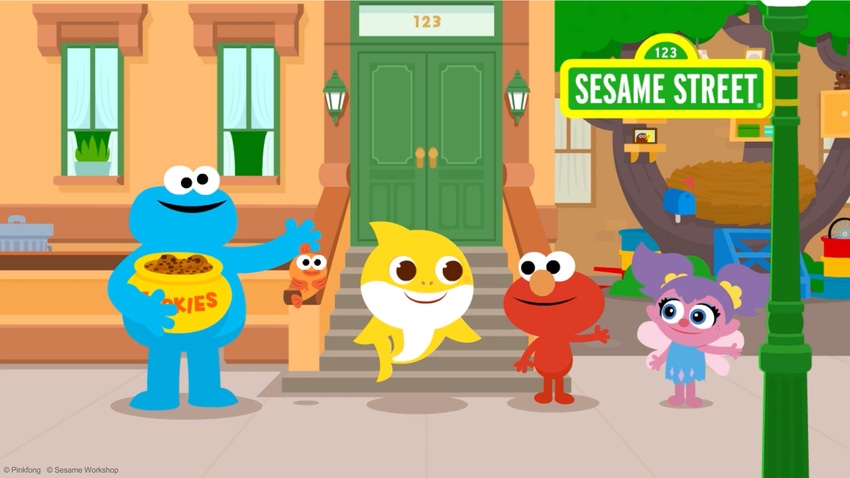
At a Glance
- Expanding Horizons Through Platform Diversification
- The Role of Traditional Licensing
- Bringing “Sesame Street” to Life
Since 1969, Sesame Workshop, and its flagship entertainment, “Sesame Street,” has been a hallmark of childhood spanning generations. Its message – that of helping children everywhere grow smarter, stronger and kinder – is heard in more than 70 languages across 150-plus countries. Its ethos is also a global one – ultimately to see the world through a child’s eyes while introducing them to a culture of acceptance and belonging, no matter the obstacles or opportunities that stand in their way.
It’s a message that filters down from the highest-level touchpoints (such as the dynamic breadth of entertainment offerings) to the licensed brand level extensions they produce, which generate $1.25 billion in retail sales for Sesame Workshop.
Expanding Horizons Through Platform Diversification
Sesame Workshop expertly navigates its audience of both children and their co-viewing adults by harnessing the power of media and technology to match today’s consumer habits. Whether it be through traditional linear television, YouTube presence (@SesameStreet has more than 23.5 million subscribers, in fact), social media like TikTok (where it has 6.9 million likes and more than 683,000 followers), Instagram or other channels, Sesame Workshop always makes it a top-tier priority to leverage its deep brand equity in smart and always-authentic ways that encourage full immersion in its brand.
“The important thing is that we always are going to be serving kids and all the needs they have, even as those needs evolve,” says Gabriela Arenas, senior vice president, global consumer products, Sesame Workshop. “But as we are a nonprofit, we don’t have the massive budgets that commercial companies tend to have. So, for us, leveraging the power of partnerships and selecting partners who are mission-aligned helps us to connect with audiences and not only reach them, but also deepen connection.”
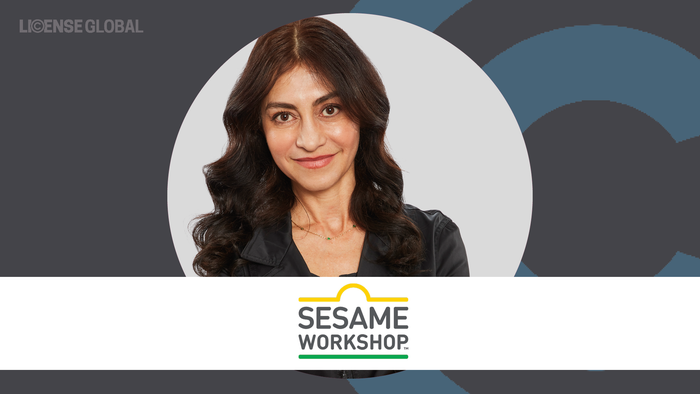
Gabriela Arenas, senior vice president, global consumer products, Sesame Workshop.
Programs and partnerships are great examples of how Sesame is being smart and strategic with its brand extensions to further achieve audience penetration.
A perfect example is for this year’s Baby Shark cobranding. In April, Sesame Workshop and The Pinkfong Company joined forces to create content and ancillary entertainment (such as a YouTube playlist) that brings together the best of both child-loved companies – Elmo, Cookie Monster and Abby Cadabby with Baby Shark, who itself is one of the most-viewed YouTube videos of all time. The partnership was a worthwhile venture for both companies.
Roblox is another way that Sesame Workshop is driving its brand forward and engaging new and seasoned audiences.
Last year, the company debuted “Sesame Street Mecha Builders: The Game” on the Roblox platform, where robot or “Mecha” Abby, Cookie and Elmo help players work through a series of STEM-based puzzles and challenges, encouraging them to “plan it, test it, solve it.” The game was so popular that a brand-new level 4 was just added in May.
To date, the game has more than 35.9 million visits from 35-plus countries and further reinforces Sesame’s ability to remain fresh and relevant for new and existing audiences.
“Roblox is another way we’re taking our characters beyond the show and extending our reach,” says Arenas.
According to Arenas, the partnership with Roblox was an “unbelievable global launch” that also yielded additional new opportunity for licensed Mecha Builders avatar accessories available in game and in the Roblox marketplace.
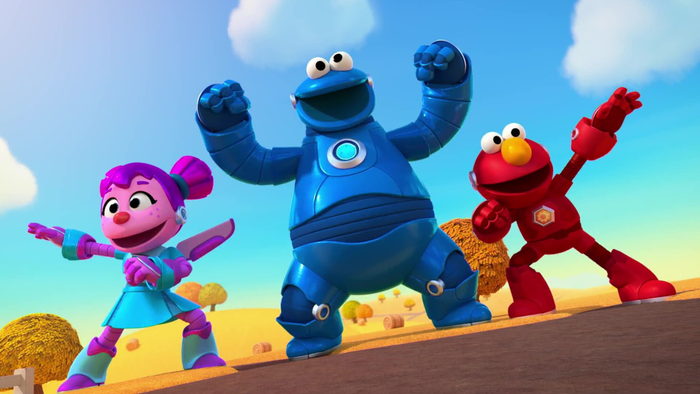
“Sesame Street Mecha Builders: The Game” on Roblox.
Another creative partnership is with Headspace, which began as a way to support Sesame’s thematic drive for emotional well-being, but evolved into so much more.
Launched out of pandemic needs in 2020, Sesame Workshop paired with meditation app Headspace, to create animated shorts geared to children to help them learn the fundamentals of mindfulness, meditation and social and emotional learning. The “Sesame Street” x Headspace shorts launched on YouTube Kids, but has since evolved to be much more comprehensive, says Arenas, including a book series with Random House and a podcast titled “Goodnight, World” now in Season 2.
Other non-traditional partners like United Airlines, Doordash, Califia and NerdWallet also keep Sesame Workshop and its characters hyper-relevant.
The Role of Traditional Licensing
More typical licensed partnerships continue to be a cornerstone of Sesame’s strategy. Product categories like toys and books or food and beverage, for example, are long-trusted partnerships (some for more than 20 years, says Arenas) that remain central to expanding the world of “Sesame Street.”
In 2022, Sesame Workshop signed Just Play as its multiterritory master toy licensee for North America, Latin America, Europe, the Middle East and Africa. This year, Just Play is rolling out a wide range of engaging and educational preschool toys across categories such as plush, figures, playsets, vehicles, role play, bath and learning.
“Just Play is more than just a master toy partner,” says Arenas. “They enable the power of learning through toys, and that is super relevant as well as missionaligned. They also support Sesame Workshop with additional incremental resources that further our mission of emotional well-being.”
In fact, Just Play contributes to Sesame Workshop’s social impact efforts by providing funding for vital initiatives that bring critical early learning and support across a broad variety of challenges to children around the world.
Food and beverage continues to also be a segment that both supports Sesame’s purpose-driven message through licensing and broadens its reach.
Partners like Apple & Eve have been working with Sesame Workshop to deliver healthy, organic juices to children and their caregivers via grocery aisles.
Other partners, like the recently announced partnership with fast-casual restaurant chain, Just Salad, create additional awareness for Sesame while still delivering on the company’s fundamental mission. The pairing brings a first-ever kids’ menu that features an array of meals that incorporate “Sesame Street” characters.
“These partnerships [in food and beverage] … are long-standing and across different categories,” says Arenas. “They really support who Sesame Workshop is, what we do and allow us to navigate these changes.”
With more than 500 licensees around the world, the licensed deals allow the brand to move into categories that are both traditional and sometimes unexpected, like in new segments such as adult collectibles (Super 7) and collaborations with major household names like Under Armour, adidas, Vans, UGG, Wet N Wild, H&M, Zara, Moschino and more.
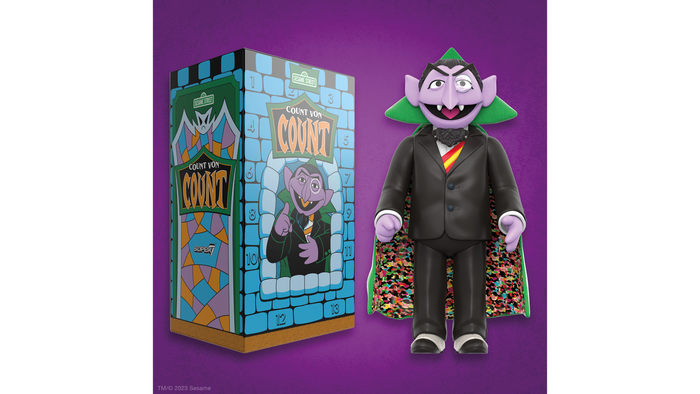
The Count Super7 collectable.
Bringing “Sesame Street” to Life
Live entertainment also continues to be central to Sesame Workshop’s strategy in terms of licensed brand extension and audience engagement.
There are the usual suspects, such as the Sesame Place theme parks and collaborations with partners such as Sea World, but then there is also the new Sesame-owned ventures that bring the brand into the business of customer-first retailtainment.
Opened this fall at the Philadelphia, Pa, Sesame Place location is a 6,800-square-foot immersive shopping experience. Billed as a “new way to experience ‘Sesame Street’-themed fun,” the free-to-enter retail emporium will bring the series characters to life through a large selection of merchandise, park souvenirs and more.
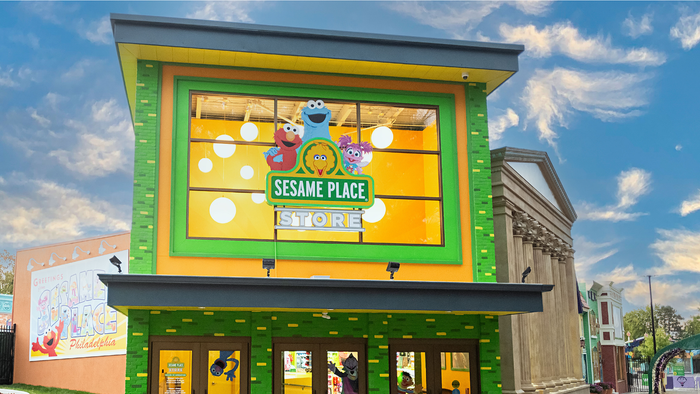
The new Sesame Place Store, located in Philadelphia, PA.
According to Arenas, Sesame Workshop has created a similar experience in Japan, dubbed Sesame Street Market, in collaboration with Mash Style Lab.
“[Sesame Street Market] will primarily be for fans, but it will offer in-store workshops, a café and merchandise,” says Arenas.
The Sesame Street Market opened in November. Other live ventures on offer include an off-Broadway show, “Sesame Street: The Musical,” which runs in New York City through the end of the year. The show allows fans to experience the muppets from “Sesame Street” up-close and in-person as they sing the TV series’ iconic songs. Arenas also shares that another live show will debut in North America next year.
Hotels (such as the Beaches resorts or Shangri-La hotels in Asia) and educational play centers, further drive home the marriage between audience engagement and brand extension.
Last year, Sesame Workshop launched its first in a series of educational play centers in Korea, in partnership with AVECS Creative Group.
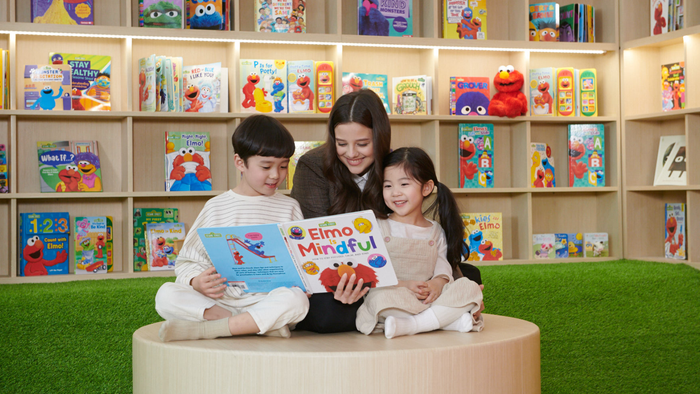
Educational play center in Korea.
“We know that children are going to learn best when they are playing and engaged socially, so we launched the first ‘EPC’ in Korea,” says Arenas. “It’s an area that we will start to expand into additional markets in 2024, and those will be announced soon.”
What’s Next?
“Sesame Street” will continue to be the future forward content it was founded on, leveraging its formula of message-driven narratives with a pop culture twist as it always has, but will shake up its format in coming years.
On Nov. 9, Season 54 of “Sesame Street” debuted on Warner Bros.’ Max platform, and will bring 35 episodes of the iconic children’s series to air featuring heavy-hitting celebrity guests like Quinta Brunson, Brandi Carlile, Eugene Cordero, Ariana DeBose, Dan Levy and Kal Penn.
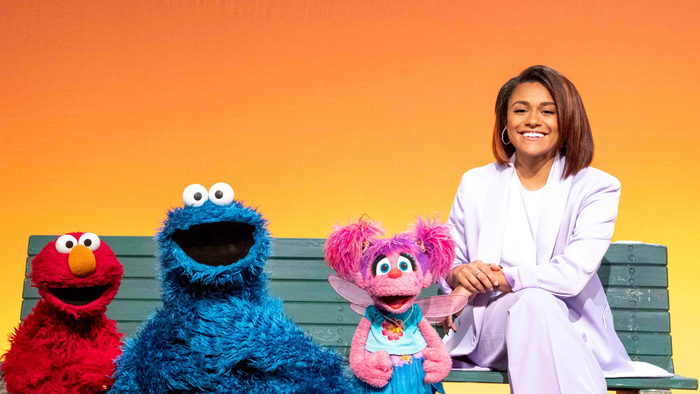
Ariana DeBose on "Sesame Street."
Season 55’s focus has not yet been announced, but it will air in 2024, and will usher in a new, reimagined format for Season 56, targeted for 2025.
According to a recent interview in The Hollywood Reporter, Season 56 will move away from the traditional “magazine-style format” of years past in favor of a narrative-driven style that includes a new animated series embedded within, called “Tales from 123.”
“The new format is going to be a mix of live-action and animation and allows us to dive deeper into character development, build more playable storylines,” says Arenas. “This will also allow us to expand the target age range, including more four- and five-year-olds.”
All of this, created by a non-profit.
“We’re a smaller company in a big, big world of entertainment,” says Arenas. “But we have an incredibly powerful brand.”
This article featured in December's issue of License Global. Read the issue now ...
About the Author(s)
You May Also Like








